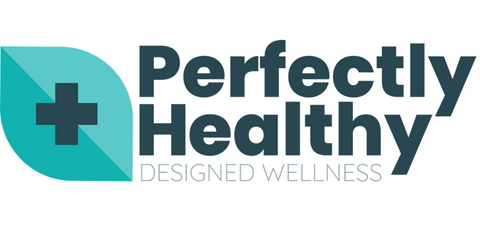Let's dive into the world of inflammation and gout. These conditions might sound like medical jargon, but don't worry—we'll break it down for you in simple terms. We'll explore what they are, what causes them, and most importantly, how you can find relief. So, grab a cup of tea, get comfy, and let's get started!
What do we know about inflammation?
Imagine you accidentally cut your finger while chopping vegetables - it's painful, right? But have you ever wondered why your finger becomes swollen and red after the injury? That's inflammation in action. It's your body's natural defense mechanism to protect against harmful substances, like bacteria or viruses.
Inflammation can be acute, which means it occurs suddenly and lasts for a short time, like when you twist your ankle. On the other hand, it can also be chronic, persisting for months or even years. Chronic inflammation is where things get tricky and can lead to various health issues.
We often hear about inflammation and its negative effects, but do we truly understand why it's considered so bad for our bodies? Buckle up, my friends, as we delve into the world of inflammation and discover what it can do to our precious vessels of life.
First things first, let's clarify what inflammation actually is. Inflammation is the body's natural response to injury, infection, or harmful stimuli. It's like the alarm bells ringing, summoning the immune system's cavalry to protect and heal the affected area. In acute cases, inflammation is a beneficial process that helps the body recover and fight off invaders. However, when inflammation becomes chronic, it becomes a silent saboteur wreaking havoc on our health.
So, why is chronic inflammation so detrimental? Let's break it down:
Increased Disease Risk: Chronic inflammation has been linked to a wide range of diseases, including heart disease, diabetes, cancer, autoimmune disorders, and neurodegenerative conditions. It acts as a catalyst, promoting the progression of these diseases and making them more challenging to manage.
Tissue Damage: Prolonged inflammation can cause damage to healthy tissues and organs. It puts constant stress on cells, leading to oxidative stress and free radical production, which can harm DNA and cellular structures. Over time, this damage accumulates and contributes to the development of chronic conditions.
Immune System Dysfunction: Inflammation can disrupt the balance of our immune system. It can lead to an overactive immune response, where the body mistakenly attacks its own healthy tissues, causing autoimmune diseases. On the flip side, chronic inflammation can weaken the immune system, making us more susceptible to infections and illnesses.
Pain and Discomfort: Inflammation often comes hand in hand with pain and discomfort. Conditions like arthritis, tendonitis, and inflammatory bowel disease are notorious for causing chronic pain, limiting mobility, and reducing the overall quality of life.
Accelerated Aging: Chronic inflammation has been linked to accelerated aging processes. It promotes the shortening of telomeres, the protective caps at the ends of our chromosomes that are associated with cellular aging. This can lead to premature aging and increased vulnerability to age-related diseases.
Understanding Gout:
Now, let's talk about gout. Picture this: you wake up one fine morning, and your big toe feels like it's on fire! That's gout: a form of arthritis that primarily affects the joints. Gout occurs when there's an excessive buildup of uric acid in your bloodstream, leading to the formation of sharp, needle-like crystals in your joints.
What Causes Inflammation and Gout?
Inflammation can be triggered by a variety of factors, including injuries, infections, and autoimmune disorders. Sometimes, it's a response to lifestyle choices like a poor diet, lack of exercise, smoking, or chronic stress. Certain medical conditions like obesity or diabetes can also contribute to chronic inflammation.
What are some of the culprits behind gout?
Uric acid, which is a byproduct of purine metabolism, usually dissolves in the blood and is excreted through the kidneys. However, if your body produces too much uric acid or has trouble getting rid of it, it can accumulate and form those pesky crystals in your joints, resulting in gout attacks.
Finding Relief:
Good news! There are ways to tackle inflammation and gout and live a pain-free life. Here are some remedies you can try:
Watch Your Diet: Limit foods high in purines, such as red meat, shellfish, and organ meats. Instead, opt for low-fat dairy products, fruits, veggies, and whole grains. Stay hydrated by drinking plenty of water to help flush out excess uric acid.
Shed Extra Pounds: If you're carrying some extra weight, losing it can help reduce inflammation and ease the strain on your joints. Incorporate regular exercise into your routine, whether it's walking, swimming, or dancing. Remember, every little step counts!
Say No to Stress: Chronic stress can contribute to inflammation, so it's essential to find healthy ways to manage it. Consider practicing relaxation techniques like deep breathing, meditation, or engaging in hobbies you love. Surround yourself with positive vibes!
Medications and Treatments: Consult a healthcare professional to explore medications that can help manage inflammation or gout. They might prescribe nonsteroidal anti-inflammatory drugs (NSAIDs) for pain relief or recommend medications to lower uric acid levels. Physical therapy or other complementary therapies may also be beneficial.
Inflammation and gout might sound daunting, but armed with knowledge and a few lifestyle adjustments, you can overcome them. Remember, taking care of your body is an ongoing journey, so be patient and kind to yourself.




